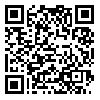BibTeX | RIS | EndNote | Medlars | ProCite | Reference Manager | RefWorks
Send citation to:
URL: http://mjiri.iums.ac.ir/article-1-3895-en.html
Background: Excessive and uncontrolled television watching by children predisposes them to some risks such as developmental, social and psychological disorders. Parents play an important role in nurturing their children and controlling the factors affecting their health. The aim of this study was to determine the impact of health education programs on parents’ supervision skills to control their children’s television watching habits based on the theory of planned behavior.
Methods: One hundred twenty parents of the students at the first and fifth grades of primary school were randomly divided into an intervention and a control group. Data were collected by a self-report questionnaire at the beginning of and one month after intervention. An educational intervention was implemented for the case group parents, who were divided into four 15-member groups, in the form of three 45-60 minute sessions with focus group discussions. Moreover, the parents were provided with children and television booklet. Data were entered into SPSS-16 and were analyzed using Chi-square, paired t test, Mann-Whitney and Wilcoxon tests.
Results: After the intervention, significant changes were detected in the intervention group with respect to the mean hours of watching television (from 6.74±2.02 to 4.28±2.40; p= 0.039), knowledge scores (from 5.8±2.1 to 7.7±1.9; p= 0.001), attitude towards less television watching (from 35.5±11.5 to 48.4±8.9; p=0.003), subjective norms (from 11.8±8.1 to 24.5±8.6; p>0.001) and behavioral intention (from 18.6±7.4 to 31.8±5.1; p=0.001).
Conclusion: The results revealed that educational interventions based on the theory of planned behavior are capable of changing knowledge, attitude, subjective norm and intention of parents towards controlling and monitoring their children's television watching and can improve the performance of parental control and reduce the hours of TV watching by children. Therefore, this pattern is suggested for reforming the nurturing skills of parents about other behavioral problems of their children.
| Rights and permissions | |
 |
This work is licensed under a Creative Commons Attribution-NonCommercial 4.0 International License. |





